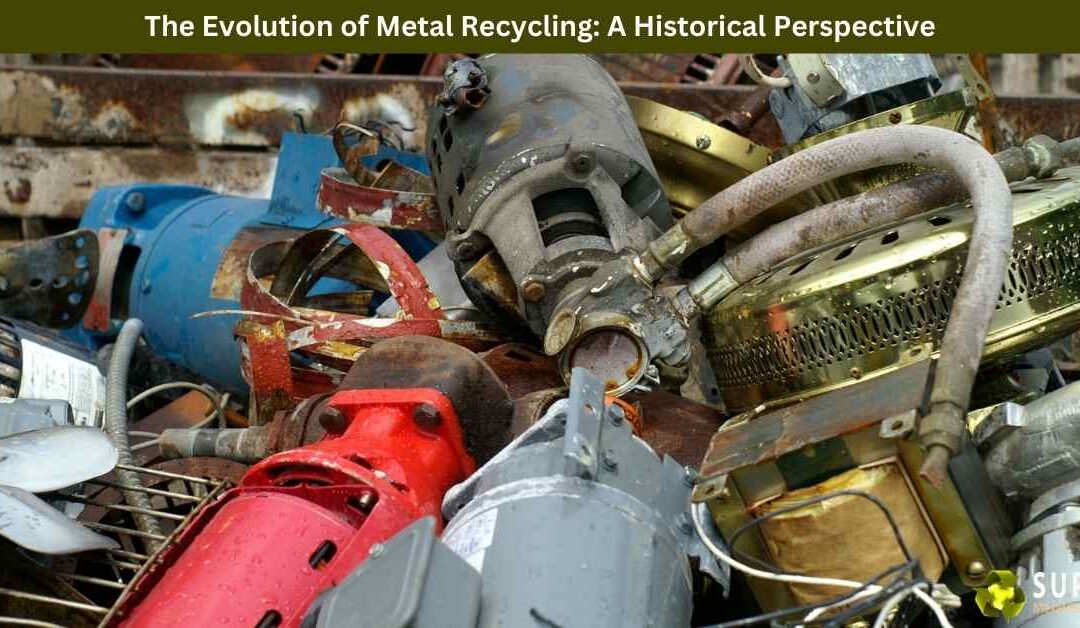Metal recycling has played a crucial role in resource conservation and sustainability for centuries. From ancient civilizations to modern industrial processes, metal recycling has evolved significantly, shaping how societies manage waste and raw materials. Here’s a historical look at the evolution of metal recycling.
Ancient Metal Recycling Practices
The practice of metal recycling dates back to ancient times when metals were highly valuable and difficult to extract. Some key periods include:
- Bronze Age (3300–1200 BCE): Early civilizations, such as the Egyptians and Mesopotamians, recycled bronze and copper to create tools and weapons.
- Roman Empire (27 BCE–476 CE): Romans collected and reused scrap metal from broken armor, coins, and construction materials due to high demand and limited supply.
Medieval and Renaissance Advancements
During the Middle Ages and Renaissance, metal recycling continued to be a practical necessity. Blacksmiths would melt down old metal objects to craft new tools and weaponry, reducing the need for fresh raw materials.
Industrial Revolution and Mass Metal Production
The 18th and 19th centuries saw rapid industrialization, leading to an increase in metal production and recycling efforts:
- Scrap iron and steel recycling became common for manufacturing and construction.
- War efforts in the 19th and early 20th centuries encouraged large-scale metal collection to support military production.
World Wars and the Rise of Systematic Recycling
Both World War I and II saw governments promoting metal recycling as a national effort:
- Rationing programs encouraged citizens to donate scrap metal for war machinery.
- Recycling campaigns helped conserve resources and support manufacturing.
Post-War Industrial Growth and Recycling Regulations
After World War II, rapid industrialization and economic growth led to increased metal consumption. However, concerns over resource depletion and environmental impact led to:
- The establishment of organized recycling industries in the 1950s and 1960s.
- Environmental regulations in the 1970s, such as waste management laws, promoting sustainable metal recycling.
Modern Metal Recycling Innovations
With technological advancements, metal recycling has become more efficient and widespread:
- Automated sorting and shredding technologies improve recycling efficiency.
- Closed-loop recycling systems allow industries to reuse metals in a sustainable cycle.
- Sustainability initiatives encourage businesses and consumers to prioritize recycled metals.
Conclusion
The history of metal recycling demonstrates its importance in resource conservation and environmental sustainability. From ancient times to modern innovations, metal recycling continues to evolve, reducing waste and preserving valuable materials for future generations. As technology advances, the future of metal recycling promises even greater efficiency and sustainability.
If you are in Doveton, Victoria 3177, and looking for a metal recycling service, this is the best way to visit us.
Super Metal Recycling
345 Frankston – Dandenong Road, Dandenong South VIC 3175
(03) 9706 4909


Recent Comments